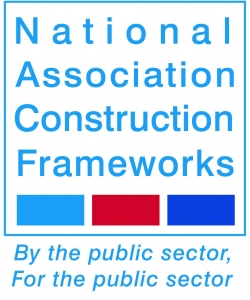Key learnings from our members at UKREiiF
UKREiiF is just behind us, and was attended by a range of NACF partners, who presented and exhibited.
The UK Real Estate Investment and Infrastructure Forum (UKREiiF) has fast become a pivotal platform for unlocking investment and accelerating regeneration across the UK. By bringing together public and private sector leaders, UKREiiF supports transformative development projects that fuel long-term economic growth. From city mayors and government agencies to investors and developers, the forum is where ambitious ideas turn into real opportunities — shaping the future of our towns, cities and communities.
So, what were the key learnings from the day?
Retaining talent from across the regions
One of the key issues explored was the importance of creating attractive career pathways for graduates and how this is crucial to ensuring the industry’s long-term sustainability.
Mike Tyler, NWCH business development manager, said:
“There is a growing need to create attractive career pathways and living environments to prevent a “brain drain” to larger cities. Construction frameworks can support this by prioritising projects that enhance regional quality of life, such as affordable housing, transport infrastructure, and cultural amenities.”
Frameworks play a key role in collaborating with contractors to create modern induction and training programmes that give workers hands-on experience across areas like commercial, design, and health and safety. This exposure helps individuals explore their interests and shape their own career paths, promoting autonomy and engagement.
Constructing West Midlands officially launched its CWM Future’s Network at the event to help address this, which offers cross organisational mentoring, facilitates visits to schools, colleges and Care Leaver’s hubs, and provides work experience for college students.
Construction Frameworks as a critical enabler in the context of devolution and regional growth
There was significant discussion around the evolving landscape of devolution and its potential to empower local regions. A central theme was the Metro Mayor model, which is increasingly seen as a more effective and focused mechanism for delivering devolved powers.
Devolution is set to give councils more control over budgets, planning and project delivery, allowing them to decide how and when to engage private contractors for regeneration schemes or infrastructure development.
Frameworks that operate a two-stage procurement process will be integral in this process. Combined authorities can deliver projects efficiently and to budget and involve pre-approved private sector partners that have a deep understanding of local need.
Mike Tyler said: “In this context, construction frameworks emerge as a critical enabler. With devolved powers, regions can tailor infrastructure and development strategies to local needs. Construction frameworks—especially those aligned with local priorities—can accelerate delivery, ensure value for money, and support local supply chains.”
The role of city universities in economic growth and regional development
City universities play a vital role in driving the economic health of towns and regions. Beyond delivering education, they act as key hubs for innovation, research, and the development of a skilled workforce.
However, a decline in international student numbers is raising financial concerns for many institutions that depend heavily on overseas tuition fees. This funding gap doesn’t just affect universities—it could also have a ripple effect on the construction sector and pipelines. By working closely with universities early in the project lifecycle, frameworks can help scope developments that are adaptable and scalable, aligning with potential shifts in funding or student numbers.
Public and private sector collaboration
James Wright, Head of SCF (South East and London) said:
“A view that was repeated again and again across the great panel discussions and events, was the importance of public and private sectors working together to deliver social benefits, meet the carbon challenge and deliver excellent projects across the built environment.”
As we look ahead, the key takeaway is clear: strong partnerships, local insight, and a long-term vision are essential to delivering the places and opportunities our communities deserve.
